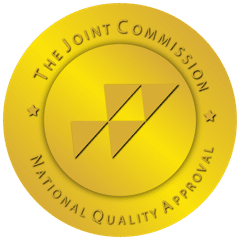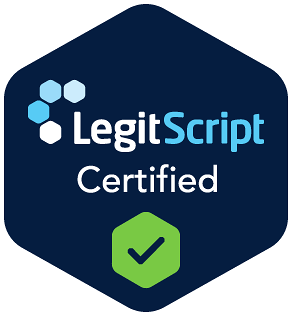In the landscape of addiction treatment, there’s a powerful tool that’s gaining recognition for its effectiveness in supporting individuals on their path to recovery: Intensive Outpatient Programs (IOP). Offering a unique blend of flexibility, intensive therapeutic support, tailored treatment plans, real-life application of coping skills, and integration of support networks, IOP is emerging as a cornerstone of holistic addiction treatment. Join us as we explore why IOP may be the key to unlocking your potential and paving the way towards lasting sobriety and fulfillment.
Partial Hospitalization Programs Services
Flexibility to Attend Treatment While Maintaining Daily Responsibilities
One of the primary advantages of IOP is its flexibility, allowing individuals to attend treatment sessions while maintaining their daily responsibilities such as work, school, or family commitments. Unlike residential treatment programs that require full-time commitment, IOP offers a middle ground, enabling individuals to receive intensive therapeutic support without disrupting their everyday lives.
This flexibility empowers individuals to prioritize their recovery without sacrificing their professional or personal obligations, fostering a sense of balance and autonomy that is essential for long-term success. Lift Off Recovery specializes in providing tailored addiction treatment programs that accommodate the unique needs of professionals in Huntington Beach, ensuring they can maintain their commitments while focusing on their journey to recovery.
Intensive Therapeutic Support Without Residential Commitment
Despite not requiring residential commitment, IOPs provide intensive therapeutic support comparable to that of inpatient treatment programs. Through a combination of individual counseling, group therapy, psychoeducation, and experiential therapies, individuals receive comprehensive care tailored to their unique needs and goals. The structured nature of IOPs ensures that individuals have access to the support and guidance they need to navigate the challenges of addiction recovery while remaining actively engaged in their daily lives.

Tailored Treatment Plans Addressing Individual Needs and Goals
Central to the success of IOPs is the emphasis on tailored treatment plans that address the individual needs and goals of each participant. Before entering the program, individuals undergo a thorough assessment to identify their strengths, challenges, and areas for growth. Based on this assessment, treatment professionals collaborate with clients to develop a personalized plan that integrates evidence-based interventions, therapeutic modalities, and holistic approaches to address their specific needs and goals. This individualized approach ensures that treatment is not only effective but also sustainable in the long term, setting individuals up for lasting success in their recovery journey.
Real-Life Application of Coping Skills and Relapse Prevention Strategies
One of the distinguishing features of IOPs is the emphasis on real-life application of coping skills and relapse prevention strategies. Unlike traditional treatment settings that are removed from the realities of everyday life, IOPs provide opportunities for individuals to practice and refine their skills in real-world situations. Through role-playing exercises, experiential activities, and exposure therapy, individuals learn to navigate triggers, manage cravings, and cope with stressors in a supportive and structured environment. This hands-on approach fosters a sense of empowerment and self-efficacy, equipping individuals with the tools they need to thrive in their recovery journey beyond the confines of treatment.
Integration of Support Networks and Community Resources for Long-Term Success
In addition to intensive therapeutic support, IOPs emphasize the integration of support networks and community resources to promote long-term success in recovery. By connecting individuals with peer support groups, alumni networks, sober living homes, and community-based services, IOPs create a strong foundation of support that extends beyond the duration of the program. This network of support serves as a lifeline for individuals as they transition back into their communities, providing ongoing encouragement, accountability, and resources to help them maintain their sobriety and pursue their goals.
IOP Treatment is the Key to Your Recovery At Lift Off Recovery
In conclusion, IOPs offer a unique blend of flexibility, intensive therapeutic support, tailored treatment plans, real-life application of coping skills, and integration of support networks that make them a key component of holistic addiction treatment. By providing individuals with the flexibility to attend treatment while maintaining their daily responsibilities, intensive therapeutic support without residential commitment, tailored treatment plans addressing individual needs and goals, real-life application of coping skills and relapse prevention strategies, and integration of support networks and community resources for long-term success, IOPs empower individuals to embrace their recovery journey with confidence and determination.
If you’re ready to unlock your potential and embark on the path towards lasting sobriety, consider exploring the transformative possibilities of an Intensive Outpatient Program today. Contact us today to learn more about how our program can support you on your journey to recovery.

- What is an Intensive Outpatient Program (IOP), and how does it differ from other addiction treatment options?
- An IOP is a structured treatment program that offers intensive therapeutic support while allowing individuals to maintain their daily responsibilities outside of treatment. Unlike residential programs, IOPs do not require full-time commitment, providing a middle ground between inpatient and outpatient treatment options.
- What are the primary benefits of participating in an IOP?
- The flexibility of attending treatment while maintaining daily responsibilities, intensive therapeutic support comparable to residential programs, personalized treatment plans tailored to individual needs and goals, real-life application of coping skills and relapse prevention strategies, and integration of support networks and community resources for long-term success.
- Who is an ideal candidate for an IOP?
- Individuals who require intensive therapeutic support for addiction recovery but are unable or unwilling to commit to a residential treatment program due to work, school, or family obligations. IOPs are suitable for those who can benefit from structured treatment while maintaining a level of autonomy in their daily lives.
- What types of therapies and interventions are typically offered in an IOP?
- IOPs may include a combination of individual counseling, group therapy, psychoeducation, experiential therapies, and holistic approaches tailored to address the specific needs and goals of participants. Therapeutic modalities may vary based on the program and individual treatment plans.
- How are treatment plans personalized in an IOP?
- Before entering the program, individuals undergo a thorough assessment to identify their strengths, challenges, and areas for growth. Treatment professionals then collaborate with clients to develop personalized plans that integrate evidence-based interventions and holistic approaches to address their unique needs and goals.
- Can IOPs effectively address co-occurring mental health disorders?
- Yes, IOPs are equipped to address co-occurring mental health disorders alongside addiction through comprehensive treatment plans that incorporate therapeutic interventions tailored to individuals’ specific needs. Dual diagnosis treatment is a common component of many IOPs.
- How long do individuals typically participate in an IOP?
- The duration of participation in an IOP varies depending on individual needs, progress in treatment, and program requirements. Some individuals may participate in an IOP for several weeks or months, while others may continue in the program for an extended period as part of their ongoing recovery journey.
- Are family members involved in the treatment process in an IOP?
- Family involvement varies depending on the program and individual circumstances. Some IOPs offer family therapy sessions or educational workshops to engage family members in the treatment process and support the overall recovery of the individual.
- What happens after completing an IOP?
- After completing an IOP, individuals may transition to less intensive levels of care, such as outpatient therapy or support groups, to continue their recovery journey. Many programs also provide aftercare planning and support to help individuals maintain their sobriety and navigate challenges post-treatment.
- How can I find an IOP that meets my needs and preferences?
- Research treatment facilities in your area, read reviews, and contact programs directly to inquire about their services, approach to treatment, and admissions process. Consultation with addiction treatment professionals or organizations can also provide guidance on finding the right IOP for you






